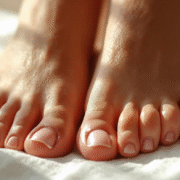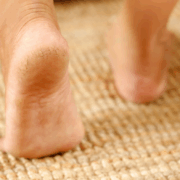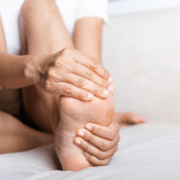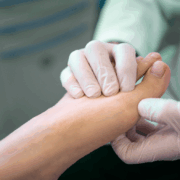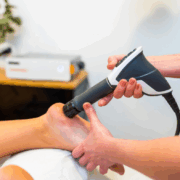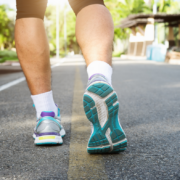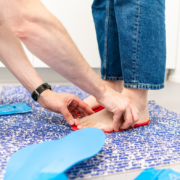5 Foot Signs That Usually Don’t Mean Heart Trouble
During American Heart Month, it’s typical to read a lot of fear-mongering misinformation online and get scared. However, we at Carrollton Foot Center are here to set the heart’s record straight. If you notice any of these signs in your feet, your cardiovascular system is most likely fine, contrary to what you might have thought.
1. Burning or Tingling in One Foot
While poor circulation can cause a dull ache, a sharp burning sensation in your feet, especially if it’s only in one foot, is rarely a heart issue. Instead, this usually points to a nerve problem. You might have a pinched nerve in your back (sciatica) or a localized issue like Morton’s neuroma, which is a thickening of the tissue around the nerves leading to your toes. If it feels like an electric shock, it’s likely a nerve, not a heart problem.
2. Cold Feet Only After It Rains or Snows
If your feet are icy cold 24/7, even in a warm room, you might check your circulation. But if your feet only feel cold after you’ve been out in the slush, it’s likely an environmental or footwear issue. Many waterproof boots lose their seal over time. If moisture is getting in, your feet will freeze regardless of how strong your heart is. If they warm up quickly once you’re inside, your heart is doing its job just fine.
3. A Painful Knot in Your Arch
If you feel a sharp pain in your arch the second you step out of bed, your mind might jump to a blood clot or arterial blockage. However, this is the classic signature of plantar fasciitis.
This is a mechanical issue where the thick band of tissue supporting your arch becomes inflamed. It’s about how you walk and the shoes you wear, not how your heart is pumping.
4. Swelling in Only One Ankle
We often hear that swollen ankles mean heart failure. However, heart-related swelling is almost always bilateral, meaning it happens in both feet at the same time.
If only your left ankle is puffy while your right one looks normal, you are likely looking at a local issue like a minor sprain, a bug bite, or a localized vein problem rather than a failing heart.
5. Sudden Yellowing of the Toenails
If your toenails are turning yellow and getting thick, you might worry about oxygen levels. In reality, 90% of the time, this is simply a fungal infection.
Fungus loves the damp environment of winter boots. While it’s a nuisance, it’s a localized skin and nail issue, not a sign that your heart is struggling to deliver nutrients.
Always check with a trusted podiatrist to be 100% sure!
Consult with Board-certified podiatrist Dr. Naghmeh Lilly Khavari, a knowledgeable professional who is dedicated to her patients in Denton, Dallas, and Collin Counties. Dr. Khavari treats a wide range of conditions, from ingrown toenails to foot and ankle injuries. Call Carrollton Foot Center’s office (located in Carrollton, Texas) at (469)-998-3668 to schedule your first appointment today!

